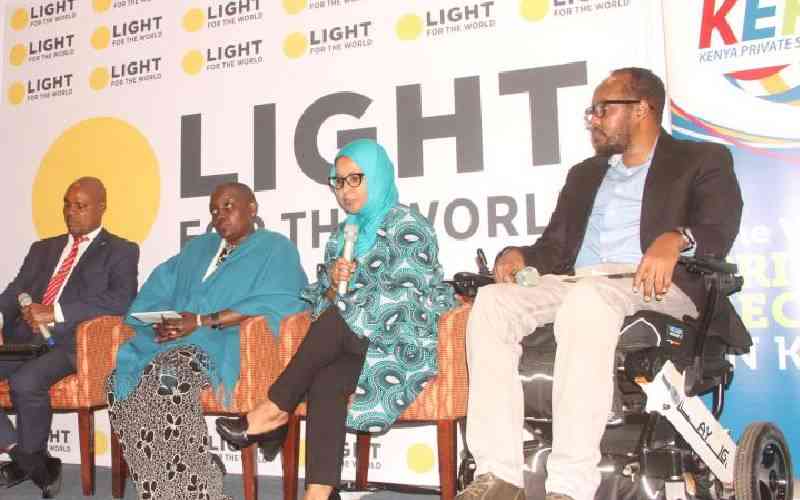×
The Standard e-Paper
Smart Minds Choose Us

From left: Judge Imaana Justice Laibuta, Entrepreneur in Tendering and Volunteer in Disability Advocacy Grace Mwahaki, Disability inclusion Officer at light for the World Iram Bawal, and CEO national council of persons with disabilities Hassan Harun. [Edward Kiplimo, Standard]
Private sector firms have been urged to consider employing people living with disabilities (PWDs) as they have the potential and value to boost organisations.